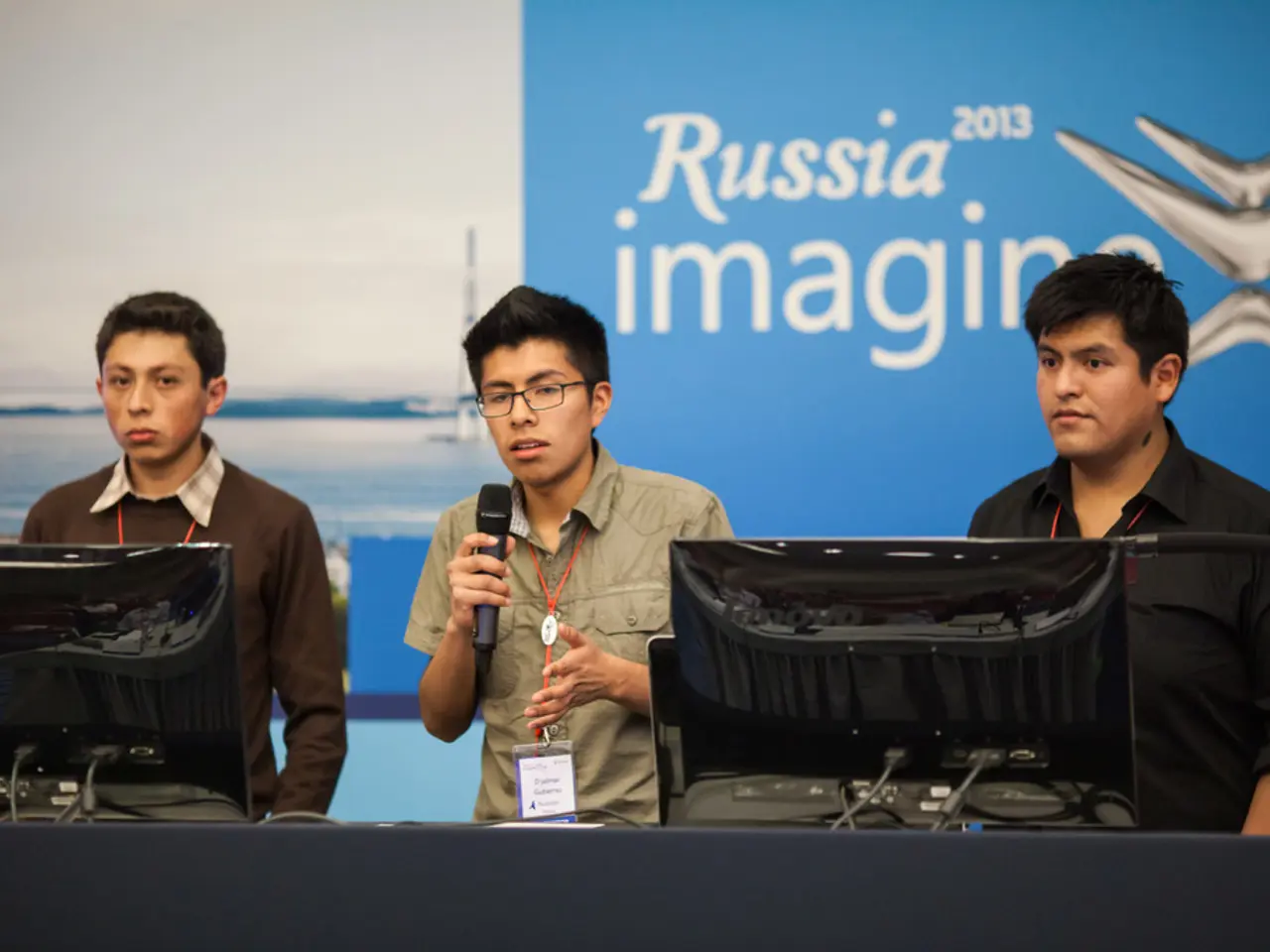NATO troop presence in Ukraine deemed harmful and pointless according to Kremlin
In the ongoing conflict between Russia and Ukraine, several key developments have taken place in recent times.
Russian President Vladimir Putin has reaffirmed his opposition to the presence of NATO troops in Ukraine, stating that such a presence poses a threat to Moscow. This opposition was echoed by Kremlin spokesman Dmitry Peskov, who linked the ongoing conflict in Ukraine to NATO's expansion towards Russia's borders.
Putin began his war against Ukraine in February 2022, with his war aim being to prevent Ukraine from joining NATO. He has expressed doubts about the effectiveness of talks with Ukrainian President Volodymyr Zelensky, questioning his legitimacy due to an expired term and non-extension of powers during martial law. However, Putin has expressed a willingness to receive Zelensky in Moscow for talks, guaranteeing his security.
In a move aimed at securing peace, 26 European countries agreed in principle to send troops—on land, air, or sea—to Ukraine to secure a ceasefire or peace agreement. This decision was made in a meeting in Paris, with the participation of US President Donald Trump. The exact form of military support is still vague and contingent on any peace agreement.
To prevent the presence of foreign military forces near Russia, participants emphasized solutions involving no permanent foreign troops stationed close to Russian borders. This is in line with Moscow's strong opposition to NATO troops in Ukraine. Russia, through Peskov, has reiterated the need for security guarantees for itself.
Interestingly, Putin has stated that he would not travel abroad for such a meeting. Multiple countries, including Turkey and several Gulf states, have offered to host a potential summit between Putin and Zelensky.
It is worth noting that any military forces appearing during combat operations would be considered legitimate targets and would be destroyed, according to Putin. On the other hand, Putin argues that no foreign troops would be needed in Ukraine as part of a long-term peace agreement.
The Ukrainian martial law allows for the extension of the president's powers and the postponement of elections during the war. Meanwhile, Putin has claimed that negotiations with Zelensky would not yield results because of his lack of legal authority to sign agreements.
In a significant statement, Peskov emphasized that NATO sees Russia as an enemy and has written this in its documents, which he considers dangerous for Russia. Russia also needs security, according to the Kremlin, although the specifics of Russia's security needs were not detailed in the article.
These developments underscore the complex and evolving nature of the conflict between Russia and Ukraine, with both sides expressing their concerns and positions clearly. The international community continues to seek a peaceful resolution to the conflict, with the potential involvement of foreign troops being a contentious issue.
Read also:
- ICE directed to enhance detention conditions following NYC immigrants' allegations of maltreatment
- Israeli finance minister issues warnings about potential annexation of West Bank territories
- United States faces rebuttal from South Africa over allegedly deceitful human rights report and assertions of land expropriation
- Accident at Rodalben Results in Injuries; Geoskop Area near Kusel Affected After Stormy Weather








